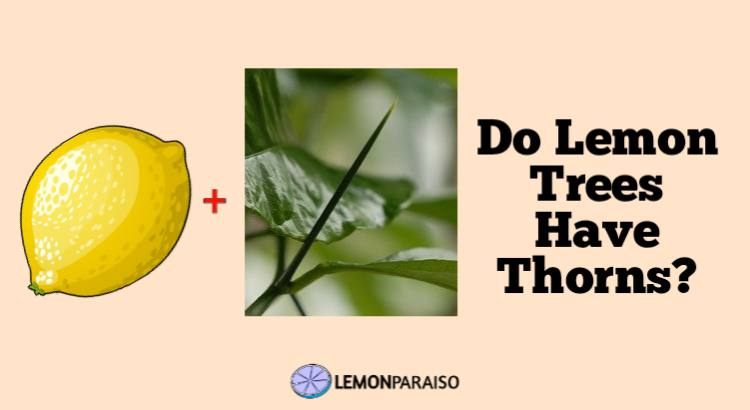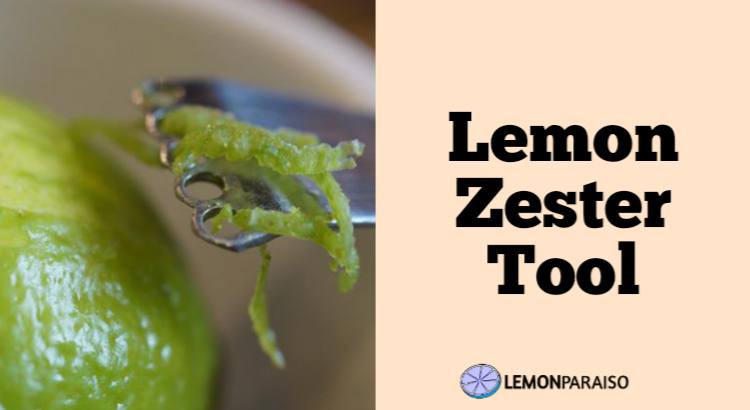Do Lemon Trees Have Thorns?

Discover the prickly truth about lemon trees! Are you curious to know if these citrus wonders come armed with thorny defenses? Well, buckle up and prepare to be amazed as we unveil the surprising answer to the age-old question: do lemon trees have thorns?
From sharp deterrents to thornless wonders, we’ll delve into the fascinating world of lemon trees and their natural armor. Get ready to embark on a journey filled with citrus secrets and juicy revelations. Let’s peel back the layers and find out if lemon trees truly have thorns.
Do Lemon Trees Have Thorns?
Most lemon tree varieties have thorns, which serve as a natural defense mechanism against herbivores that may feed on their leaves, fruit, or bark. The size and number of thorns can vary depending on the tree’s age, species, and overall health.
However, there are some lemon tree varieties, such as the Improved Meyer lemon tree and some dwarf lemon tree cultivars, that have been bred to have fewer or no thorns. When selecting a lemon tree, it is essential to consider your preferences and needs concerning the presence of thorns.
How Big Do Thorns On Lemon Trees Get?
Thorns on lemon trees can vary in size depending on the tree’s age, species, and overall health. Generally, lemon tree thorns can range from a fraction of an inch to over three inches in length. Younger trees often have more numerous and larger thorns, which can decrease in size and number as the tree matures.
Some varieties of lemon trees, such as the Ponderosa lemon tree, are known for having particularly long and sharp thorns. It is important to be aware of the presence and size of thorns when working with or around lemon trees to prevent injuries.
Are Lemon Tree Thorns Dangerous?
Lemon tree thorns are not inherently dangerous, but they can pose a risk if handled improperly. They are sharp and can easily pierce skin, causing pain and potential injury. In some cases, individuals may experience an allergic reaction to the thorns, resulting in swelling, redness, or itching around the puncture site.
Additionally, if the thorns break off in the skin or the wound becomes contaminated, an infection could develop. Proper care and attention should be given to any wounds caused by lemon tree thorns, including thorough cleaning and applying an antiseptic. In general, it is best to approach lemon trees with caution to avoid any unnecessary injuries.
Can You Remove Thorns From A Lemon Tree?
It is possible to remove thorns from a lemon tree, but doing so requires careful consideration and proper technique. Before removing thorns, assess whether they pose a significant risk to people or pets. If thorn removal is necessary, use a sharp, clean pair of pruning shears to clip the thorns close to the branch.
Avoid removing too many thorns at once, as this can stress the tree and make it more susceptible to pests and diseases. Thorns should be removed during the tree’s dormant season, typically in late winter or early spring. Keep in mind that removing thorns may not be a permanent solution, as new thorns can grow back over time.
Do All Lemon Trees Have Thorns?
While most lemon trees have thorns, there are some varieties that are either thornless or have fewer thorns than others. Thorns are a natural defense mechanism for lemon trees, deterring animals from feeding on their leaves and fruit.
However, due to selective breeding and cultivation, some lemon tree varieties have been developed with fewer or no thorns. Examples of such varieties include the Improved Meyer lemon tree and some dwarf lemon tree cultivars. It is important to research and select a suitable variety based on your specific needs and preferences when choosing a lemon tree for your garden or home.
What Is The Purpose Of Thorns On Lemon Trees?
Thorns on lemon trees serve as a natural defense mechanism against herbivores that might otherwise feed on the tree’s leaves, fruit, or bark. By deterring animals from browsing on the tree, thorns help to protect the plant and ensure its survival.
Thorns can also discourage climbing and nesting by some animals, further safeguarding the tree from potential harm. Although thorns can be a nuisance to humans when handling or pruning the tree, they play a crucial role in the tree’s overall health and longevity.
How Do You Protect Yourself From Lemon Tree Thorns?
To protect yourself from lemon tree thorns, it is essential to wear appropriate protective gear when working around or with the tree. Long sleeves, thick gloves, and safety goggles can help minimize the risk of injury from thorns.
Additionally, using tools with long handles, such as pruning shears or loppers, can help keep a safe distance from the tree while working. Always be aware of your surroundings and move carefully when navigating around the tree.
If you are pruning or harvesting fruit, make sure to have a solid footing and use a stable ladder or step stool to reach higher branches. By taking these precautions, you can reduce the risk of injury from lemon tree thorns while still enjoying the benefits of having a lemon tree in your garden or home.
How Do You Prune A Lemon Tree With Thorns?
Pruning a lemon tree with thorns requires proper tools, protective gear, and knowledge of the correct techniques. Before pruning, wear long sleeves, thick gloves, and safety goggles to protect yourself from the thorns. Use sharp, clean pruning shears or loppers to make clean cuts, which will help prevent disease and promote healing.
Focus on removing dead or damaged branches, as well as any branches that cross or rub against each other. Prune during the dormant season, typically in late winter or early spring, to minimize stress on the tree. When working around the thorns, be cautious and deliberate in your movements to avoid injury.
Are Thornless Lemon Trees Available?
Thornless lemon trees or varieties with reduced thorniness are available, thanks to selective breeding and cultivation efforts. The Improved Meyer lemon tree, for example, is known for having fewer thorns compared to other lemon varieties.
Some dwarf lemon tree cultivars also tend to have fewer or no thorns. When selecting a lemon tree for your garden or home, consider researching and choosing a variety that meets your preferences in terms of thorn presence and overall tree characteristics.
Do Thorns Affect The Quality Of Lemon Fruit?
Thorns do not directly affect the quality of lemon fruit, as their primary function is to protect the tree from herbivores. The presence of thorns on a lemon tree does not influence the taste, size, or overall quality of the fruit it produces.
However, improper handling or pruning due to the presence of thorns could potentially cause stress to the tree, which may indirectly impact fruit production or quality. Proper care and attention should be given to the tree to ensure healthy fruit production, regardless of the presence of thorns.
Do Meyer Lemon Trees Have Thorns?
Meyer lemon trees typically have fewer thorns than other lemon varieties. The Improved Meyer lemon tree, in particular, is known for having minimal thorns, making it a popular choice for home gardeners.
While the thorns may still be present, they are generally less numerous and less prominent than those found on other lemon tree varieties. However, individual trees may still vary in the number and size of thorns, so it is essential to approach them with caution to avoid injury.
Do Dwarf Lemon Trees Have Thorns?
Dwarf lemon trees may have thorns, but the presence and size of thorns can vary depending on the specific cultivar. Some dwarf lemon tree varieties have been bred to have fewer or no thorns, making them more suitable for container gardening or indoor cultivation. Despite their smaller stature, it is important to handle dwarf lemon trees with care and be mindful of any potential thorns to prevent injury.
Do Eureka Lemon Trees Have Thorns?
Eureka lemon trees typically have thorns, which can be quite sharp and numerous, particularly on younger trees. As the tree matures, the number and size of thorns may decrease. When working with Eureka lemon trees, it is crucial to wear appropriate protective gear and exercise caution to avoid injury from the thorns.
If thorns pose a significant concern, consider selecting a different lemon tree variety with fewer or no thorns, such as the Improved Meyer lemon tree or some dwarf lemon tree cultivars.
Do Ponderosa Lemon Trees Have Thorns?
Ponderosa lemon trees are known for having long and sharp thorns, which can be quite numerous, especially on younger trees. As with other lemon tree varieties, the number and size of thorns may decrease as the tree matures.
When working with Ponderosa lemon trees, it is important to wear protective gear and exercise caution to prevent injury from the thorns. If the presence of thorns is a concern, consider choosing a different variety with fewer or no thorns.
Do Lisbon Lemon Trees Have Thorns?
Lisbon lemon trees typically have thorns, which can be sharp and may vary in size and number depending on the age and health of the tree. Younger trees generally have more numerous and larger thorns than mature trees.
When working with Lisbon lemon trees, it is crucial to wear appropriate protective gear and exercise caution to avoid injury from the thorns. If the presence of thorns is a concern, consider selecting a different lemon tree variety with fewer or no thorns.
Do Valley Lemon Trees Have Thorns?
Valley lemon trees, also known as Genoa lemon trees, generally have thorns. The number and size of thorns can vary depending on the age and overall health of the tree. As with other lemon tree varieties, younger trees typically have more numerous and larger thorns than mature trees.
When working with Valley lemon trees, be sure to wear appropriate protective gear and exercise caution to avoid injury from the thorns. If the presence of thorns is a concern, consider choosing a different variety with fewer or no thorns.
Conclusion: Do Lemon Trees Have Thorns?
In conclusion, lemon trees generally have thorns as a natural defense mechanism against herbivores. The size and number of thorns can vary depending on factors such as the tree’s age, species, and overall health. However, there are thornless or low-thorn varieties available, such as the Improved Meyer lemon tree and certain dwarf lemon tree cultivars.
Lemon tree thorns can be sharp and pose a risk of injury, so it is important to handle the trees with caution and use appropriate protective gear. When pruning lemon trees with thorns, proper techniques and tools should be used. The presence of thorns does not affect the quality of the lemon fruit directly, but improper handling or pruning may indirectly impact fruit production or quality. It is essential to select a lemon tree variety based on individual preferences and needs regarding thorn presence.



